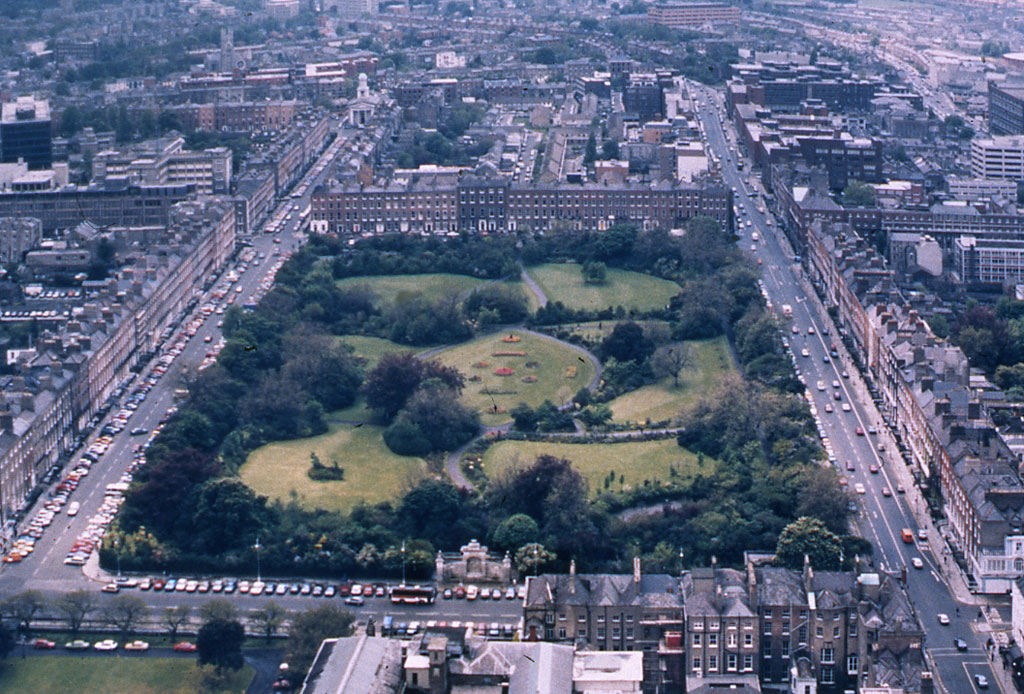
This week I was able to explore Merrion Square in Dublin through virtual reality tour and the many notable homes in the square, including the house of Oscar Wilde, pictured above. Siobhan Kilfeather, in her book Dublin A Cultural History, discusses the extensive notable residents of the square including novelists, sculptors, playwrights, politicians, and many more (84). After reading Kilfeather’s section on this square it seemed that this square is a representation of Irish culture, art and history. However, after reading “The necessity for de-Anglicising Ireland” by Duffy, Segerson, and Hyde (1904), I realized that this cultural history does not necessarily encapsulate the entirety of Irish culture. Duffy et al. argue that one resident of Marrion Square, in particular, lawyer and politician Daniel O’Connell, represents the difference in histories. He asserts that the “ancient Gaelic civilization died with O’Connell” because of his “example and neglect of inculcating the necessity of keeping alive racial customs, language, and traditions” (5). This loss of language and culture coincides with the loss of Irish musical tradition, a tradition which Duffy et al. claims is Ireland’s most “valuable possession” (12).
In the first chapter of Dublin A Cultural History, Kilfeather quotes a topography written by Giraldus Cambrensis in 1183, a member of one of the leading families involved in the Normal Invasion: “[the Irish] seemed to me to be incomparably more skilled in [musical instruments] than any other people I have seen” (33). This quote supports Duffy et al.’s assertion of the importance of Irish musical history and language in Ireland’s history. They go even further to suggest that the revival of this music “may go hand in hand with the revival of Irish ideas and Celtic modes of thought” (12).
Although the residents of Merrion Square represent various aspects of the more recent artistic cultural history of Ireland, they also serve as a representation of the loss of a distinct Irish culture following English oppression. Duffy et al. claim that the revival of the Irish language and music of the Middle Ages might be the step Ireland needs in order to establish a distinct nationality. It would be interesting to explore more about a modern revival.

